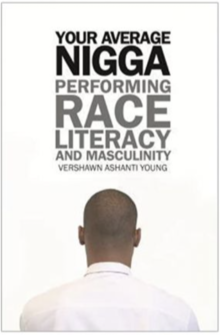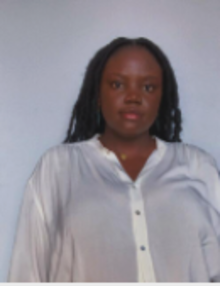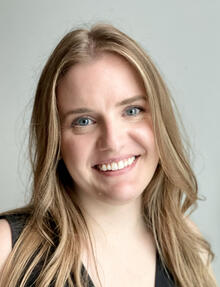
Welcome back to our eleventh issue of The Catalyst Anti-racism newsletter.
This month, our message comes from Vivek Goel, President, and Vice-Chancellor.
In this issue:
- Message from the Chair
- Anti-racism across campus
- Student feature
- Staff feature
- Research spotlight
- Bulletin board
Message from the Chair
Vivek Goel, President, and Vice-Chancellor

President Goel reflects on the International Day for the Elimination of Racial Discrimination
Originally published on Waterloo News on March 21
March 21 was the International Day for the Elimination of Racial Discrimination. It is an opportunity to reflect on the actions we can take to advance anti-racism, equity, and inclusion, not just today, but throughout the year.
As places of higher learning, universities have an obligation and opportunity to take leadership in this area. We play an important role in educating our students and the public about the inequalities and injustices that continue to pervade society. We also have a responsibility to address these issues on our own campuses and in our communities.
We have to start by confronting the history of colonialism that has and continues to challenge so many people today, particularly Black, Indigenous, and racialized people. Click here to read the entire article.
Subscribe to The Catalyst to receive each issue directly to your inbox

Anti-racism across campus
ARTS Prof to facilitate Anti-racism book club in May

Professor Frankie Condon from the Faculty of Arts will facilitate the next Anti-racism book club, scheduled for May 19 at 12 noon. Condon will be joined by her faculty colleague, Vershawn “dr. vay” Young, to discuss his book Your Average Nigga: Performing Race, Literacy, and Masculinity. The conversation promises to be riveting as Condon and Young will delve into the book’s controversial title and its provocative argument.
Your Average Nigga is dr. vay’s autobiographical analysis of the linguistic conflict that he claims exists between Black and white language styles. dr. vay, who teaches in both the departments of Communication Arts and English Language and Literature, draws from his personal experiences to argue against language instruction that requires Black English speakers to give up their language to succeed academically.
“When Black students are forced to choose standard English, they risk alienating themselves from their Black identities, families and communities and if these students are forced to choose to retain their customary speech and behavior then they risk isolating themselves from mainstream society,” dr. vay explains. This dilemma is resolved, according to dr. vay, by integrating these languages in school rather than keeping them segregated.
Pointing to the bold title of his book, dr. vay is also concerned about banning the N-word on campuses – an issue the University of Waterloo grappled within 2020.
“To forbid the N-word actually serves the purposes of white supremacy and resuscitates racism rather than defeat it. I say this because we know our society oppresses Black people. But do you know that we are also culturally suppressed in predominantly white spaces? Barring the N-word functions as a too-easy way to quash the six or seven insightful ways the word functions in Black culture.”
Frankie Condon is excited to co-facilitate the book club with dr.vay, with whom she has collaborated on several projects. Professor Condon and dr. vay are co-authors of Performing Anti-racist Pedagogy in Rhetoric, Writing and Communication. Condon looks forward to a spirited exchange, where she will ask book clubbers to tackle how we look at both race and language.
“I look forward to this discussion with the campus community,” Condon said. “dr. vay’s text will undoubtedly be a catalyst for engagement on bigger topics surrounding race, ethnicity, and culture.”
Find registration information for PART’s anti-racism book club here.
We recognize that conversations about race and racism can be difficult. If you have any concerns about this article or the upcoming event, please forward these concerns to the Anti-racism communications manager. If you have experienced harm or trauma and would like to make a disclosure, please connect with the Equity, Diversity, Inclusion & Anti-racism office here.
Celebrating the remarkable experiences of our Black alumni

Originally published in Waterloo News on February 18
Throughout the year, we’re proud to share stories of numerous Black entrepreneurs, artists, athletes, scientists, and community builders in the University of Waterloo’s alumni network.
These alumni are shaping the histories of tomorrow, by using artistry for personal expression, making risky career changes, influencing innovation in the entrepreneurial world, combatting societal issues, and forging communities of love and support. Read the entire story here.
Student feature
Tackling Black girl environmentalism and equity

(Originally published on Co-operative Educations News on Tuesday, February 15, 2022)
When it comes to following her passion and carving a space for Black rights in the environmental movement, Celine Isimbi is leading with purpose. A self-proclaimed ‘geography nerd’, Isimbi (she/her) is an Environment, Resources, and Sustainability co-op student interested in reconciling the relationships between people and the environment by understanding space-place relations. “I am an environmental liberation advocate for climate justice, environmental justice, and Black liberation who brings them together and sees how they intersect in liberating futures,” she says.
Isimbi is striving for a world where future generations will face fewer barriers in all aspects of life. She does this through her co-op roles at the University of Waterloo and volunteering as an environmental education co-director with Black Girl Environmentalist. Black Girl Environmentalist is a non-profit Read the aimed at creating space for underrepresented voices in the mainstream environmental movement. Read the entire article here.
Staff feature
Meet Savannah Sloat, project manager of Indigenous Initiatives in the Office of Research

Savannah Sloat is the new project manager of Indigenous Initiatives in the Office of Research. In this role, she is responsible for providing project management and research administration services to Indigenous faculty members. Her responsibilities also include program implementation, reporting, and knowledge translation activities.
Savannah Sloat’s family is Lenape from Six Nations of the Grand River community and Scottish settlers from the Waterloo region. She holds a Bachelor of Arts in Anthropology and English Literature and a Master of Arts in Sociocultural Anthropology. Her academic research focused on Indigenous heritage issues in Canada including, cultural tourism, identity politics, cultural resource management, appropriation and repatriation, and research ethics.
No stranger to the world of Equity, Diversity, and Inclusion (EDI), Sloat previously worked as an EDI Project Coordinator, where she supported the Ontario Association of College and University Housing Officers to develop an action plan to implement the recommendations of the EDI Taskforce and coordinating initiatives. In this role, she also connected regularly with association members and the Board to incorporate EDI into emergent issues.
The project manager of Indigenous Initiatives has also collaborated with several other colleagues in the field, on conference presentations that address the complexities of Indigenous identities, intercultural competency, and fluency, and responding to the ongoing responses to the work of the Truth and Reconciliation Commission and calls for Indigenization and decolonization within higher education.
Sloat looks forward to facilitating Indigenous research and scholarship by supporting faculty members with research at various stages, including the application, managing funds, research ethics, and commercialization, while honoring Waterloo's continued commitment to research excellence.
“I look forward to helping to realize the strategic goals of the office of research, which involves supporting Indigenous research projects, promoting Indigenous scholarship, and engaging Indigenous community partners,” she said.
Research spotlight
Meet Eugenia Dadzie, winner of the 2022 GRADflix Competition

Eugenia Dadzie, a master’s student from the Department of Biology, won first place in Graduate Studies and Postdoctoral Affairs (GSPA)’s GRADflix showcase for her video Microbes and enzymes: sustainable plastic degradation, describing her research into finding microbes that can break down plastics in the environment.
The fourth annual GRADflix showcase was held On January 31st, featuring the top 25 one-minute videos created by graduate students to describe their research at the University of Waterloo. Four of the 25 finalists were from the Faculty of Science, and the second place GRADflix prize was also given to a student in the Department of Biology – PhD candidate Atiyeh Ahmadi for her video Let’s go for a healthier future! To read the entire article, please click here.
Bulletin board

Introducing LiftOff: a Black-led business accelerator and incubator for Black Entrepreneurs
The Caribbean Canadian Association of Waterloo Region (CCAWR), in collaboration with members of the entrepreneurial ecosystem of Waterloo Region and Wellington County, has developed LiftOff, the region’s first and only Black-led incubator and accelerator program.
Funded by the Government of Canada through the Federal Economic Development Agency for Southern Ontario, LIftOff, which has a vision of catalysing long-term prosperity and well-being through community innovation, was created with the goal of helping to improve Black communities through entrepreneurship.
The 12-month program provides coaching, mentorship, networking, and other business support for Black early-stage and growth entrepreneurs. Dr. Trevor Charles, executive director of LiftOff, professor in the Department of Biology, and director of the Waterloo Centre for Microbial Research says there is a need to increase representation from racialized groups within entrepreneurship communities.
"We're developing and offering programming along with the help of our partners in the Waterloo entrepreneurial ecosystem, that are really tailored to members of the Black community that want to start and develop a business,” he said.
No stranger to entrepreneurship, Charles is also the founder, CEO, and CSO of the bioscience start-up Metagenom. He believes that Waterloo Region, with its long entrepreneurial history, strong start-up ecosystem support, and leading post-secondary institutions, is the perfect location for LiftOff.
“I don't think there's any other place in Canada where you have the same concentration of entrepreneurs and organizations that can work as a community,” he said. “We have Conestoga Entrepreneurship Collective that we're able to work with to adapt programming. We have Waterloo Region Small Business Centre, we have the University of Waterloo’s Velocity, and we have Laurier Women's Entrepreneurship Centre. You can't really find that mix of entrepreneurial wealth anywhere, probably in the world.”
Candidates can apply if they identify as Black and have an idea for a business. With over 2.9 million dollars in funding available, the incubator hopes to work with about 40 individuals or teams per year. Charles encourages the business community of the Waterloo Region and Wellington County to engage with and support the LiftOff entrepreneurs.
To learn more about this project, please visit LiftOff.